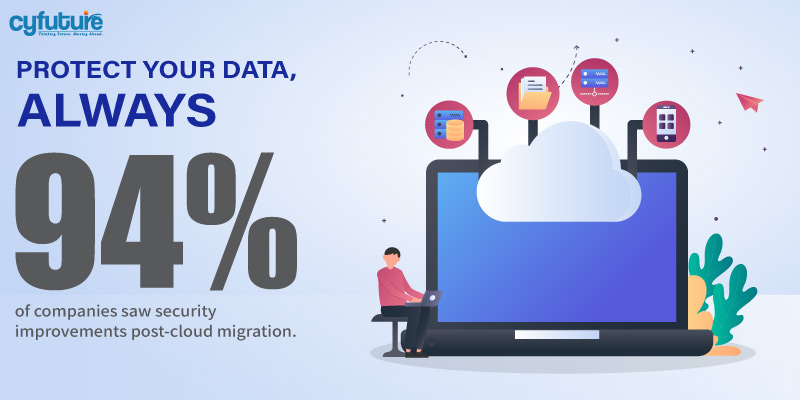-
Get Cloud GPU Server - Register Now!
Toggle navigation

In today’s rapidly evolving digital landscape, adaptability is not just a competitive advantage—it’s a business imperative. Companies that can quickly pivot operations, scale services, and meet market demands are the ones that thrive. At the heart of this modern agility lies a transformative force: cloud computing services.
Whether you’re a startup aiming for rapid growth, an SMB striving for operational efficiency, or a large enterprise navigating digital transformation, cloud computing can dramatically enhance your business’s agility. This blog explores how cloud computing services empower businesses to stay ahead of the curve by improving responsiveness, innovation, and scalability.
Business agility refers to an organization’s ability to respond quickly to market changes, customer demands, or emerging technologies—without losing momentum or vision. Agile businesses can adopt new strategies, shift operational workflows, and implement technological changes with minimal disruption.
In a volatile business environment, agility is crucial for:
Traditional IT infrastructures often fall short in supporting this level of agility. Enter cloud computing services—the catalyst for an agile, future-ready business.
Cloud computing services deliver computing resources—including servers, storage, databases, networking, software, analytics, and intelligence—over the internet (“the cloud”). These services are typically offered via models such as:
With cloud computing, businesses can access resources on a pay-as-you-go basis, eliminating the need for significant upfront investment in hardware and software.
Let’s explore the specific ways cloud computing services enhance business agility:
Traditional IT setups require time-consuming procurement and installation of hardware and software. In contrast, cloud platforms allow businesses to deploy applications within minutes. This speed to market enables organizations to respond faster to customer needs and test new ideas with minimal risk.
Example: A retail brand can launch an eCommerce portal for a seasonal sale using cloud-based tools and hosting, all within a short timeframe.
One of the standout features of cloud computing is elastic scalability. Businesses can scale computing resources up or down based on real-time demand. This flexibility is vital during traffic spikes (e.g., online sales events or viral campaigns) or when expanding into new markets.
Use Case: A fintech startup can handle increased user load during investment seasons by scaling its backend services instantly through cloud providers.
Cloud computing enables global access to resources from any device with internet connectivity. Teams can collaborate in real-time, regardless of location, which is critical in today’s hybrid and remote work culture.
Benefit: Remote teams can access files, develop software, analyze data, or run virtual machines from any location—ensuring continuity and productivity.
Cloud platforms come equipped with advanced services like AI/ML, big data analytics, IoT platforms, and DevOps tools. These services empower organizations to innovate without building infrastructure from scratch.
Insight: With pre-built tools and APIs, developers can experiment and iterate faster, resulting in faster innovation cycles.
Cloud computing services shift IT expenses from capital expenditures (CapEx) to operational expenditures (OpEx). Businesses pay only for what they use, allowing them to redirect financial resources toward innovation and customer experience.
Case in Point: A manufacturing firm can use cloud analytics tools during peak audit periods and scale down usage afterward—paying only for active consumption.
Top cloud providers offer robust security features—firewalls, encryption, identity access management, and compliance tools. These features ensure data protection without extensive in-house resources.
Agility Impact: Businesses can quickly align with changing compliance requirements and focus on their core functions, knowing their cloud environment is secure.

Modern cloud computing platforms support integration with various third-party tools, legacy systems, and APIs. This seamless interoperability ensures that businesses don’t have to overhaul entire systems to adopt new technologies.
Example: A logistics company can integrate cloud-based GPS tracking with its ERP system to improve route efficiency and delivery timelines.
Cloud computing services aren’t just theoretical benefits—they have real-world applications across multiple industries:
Each of these industries leverages cloud computing services to respond faster, operate more efficiently, and serve customers better.
At Cyfuture, we understand the unique needs of modern businesses. Our robust portfolio of cloud computing services is designed to support agility, innovation, and growth. Here’s what sets us apart:
We offer IaaS, PaaS, SaaS, and private/hybrid cloud solutions tailored to your specific needs—backed by enterprise-grade data centers and 24/7 support.
Our cloud services are hosted in high-availability data centers in India and other key regions, ensuring low latency and high performance for global teams.
Cyfuture complies with leading industry standards such as ISO, GDPR, and HIPAA, ensuring your data is protected and regulatory-ready.
From AI/ML frameworks to container orchestration and DevOps pipelines, we empower your developers to build, test, and deploy at lightning speed.
We don’t just provide infrastructure—we help you migrate, optimize, and scale your applications with strategic consulting and dedicated support.
With Cyfuture’s cloud solutions, you gain the freedom to scale, experiment, and lead—without the complexity and costs of legacy systems.
Looking ahead, cloud computing services will continue to evolve, enabling even more capabilities through:
Businesses that embrace the cloud today will be well-positioned to leverage these advancements tomorrow.
|
Cloud Benefit |
Business Impact |
|
Rapid Deployment |
Speed to market and innovation |
|
On-Demand Scalability |
Operational flexibility and cost efficiency |
|
Remote Access & Collaboration |
Workforce productivity and global reach |
|
Security & Compliance |
Trusted environment for sensitive workloads |
|
Integration & Interoperability |
Streamlined workflows and ecosystem connectivity |
|
Advanced Tools & Services |
Faster product development and innovation cycles |
In a world where change is constant, business agility isn’t optional—it’s essential. Cloud computing services offer the infrastructure, tools, and flexibility necessary for organizations to thrive in uncertain markets, innovate with confidence, and deliver exceptional customer experiences.
By partnering with a trusted provider like Cyfuture, your business gains not just access to cutting-edge cloud technology but also the strategic support required to turn agility into sustained growth.
Embrace the cloud. Boost your agility. Transform your future.